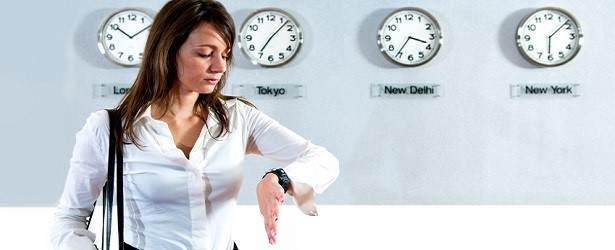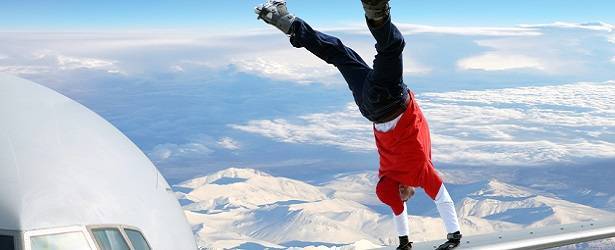
A Quick Jet Lag Solution
Jet lag can be a major drag for people who travel long distances. It can interrupt concentration that is needed for meetings with clients overseas and can cause you to feel absolutely lousy. Travelers sometimes try to deal with the problem is by partaking of drugs purchased from a drug store or prescribed by your doctor. Others will try to adjust their sleep patterns before they leave on their trip. Others just think it is in your head and deal with it just waiting for it to go away. New studies point in another direction, possibly better, that may fight jet lag; try fasting prior and during your trip.
Scientists are already aware that we have internal clocks located at the liver, heart, brain and additional tissue that is responsible for daily routes for our bodily functions and processes that may include blood pressure, temperature, wakefulness and hunger. These are called circadian clocks and are coordinated by tiny clusters of cells located within the brain that are called suprachiasmatic nucleus. These respond to dark and light. When you travel across several time regions the body gets thrown out of sync and results in symptoms called jet lag.
Symptoms include insomnia,fatigue, headache, diminished concentration and nausea. Every time zone that you cross causes you a day to adjust to the new time and let your dark/light schedule get coordinated with the local time in your new location.
Colleagues with Dr. Saper at Beth Israel Deaconess Medical Center in the city of Boston actually believe that the lack of food may adjust your body rhythms quicker than dark and light. They have identified another master clock with mice that is located within a group of cells in the brain called dorsomedial nucleus. These cells take charge when there is a scarcity of food. Scientists feel that sleep and food both are essential for our survival so they feel that hunger can control circadian rhythms like changes in dark/light patterns do.
 So scientists felt they should try to change the feeding clock instead of the sleep clock to try to curb jet lag.
So scientists felt they should try to change the feeding clock instead of the sleep clock to try to curb jet lag.
Dr. Clifford B. Saper thought you might try fasting before and also during the long flight.
Also start the correct pattern of meals according to the local time.
• Don’t eat any food once you arrive at the airport
• Don’t eat while in the air but drink as much water as possible
• Eat as soon as you can once you land but coordinate it with the local meal schedule
Whether you decided to try to fast or not, try not to consume foods high in fat during your first meal once you land because it will cause a delay in adjusting to the local time. You should always adjust your feeding schedule to any specific medical needs that you may need due to any specific health problems that you may be dealing with. You may have to consult your medical doctor if you think it is warranted. You should take into consideration the different techniques you have already attempted as well as discussing them with your doctor and use the one that seems to work the best for you. If you haven’t tried fasting, it may be a good idea to give it a chance and see if adjusting your meal schedule can do for jet lag.
TOP 5
JET LAGTreatments |
|||||
| JetRelief | JetZone Jet Lag Prevention | No-Jet-Lag | JetFighter Sleep | The Organic Pharmacy Jet Lag | |
|---|---|---|---|---|---|
| 1 | 2 | 3 | 4 | 5 | |
| Price (1 bottle) Price (6 bottles)best value |
$49.95 $139.80 |
$8.75 $52.50 |
$11.99 $71.94 |
$34.99 $209.94 |
$11.93 $119.58 |
| Overall Rating | 99.50% | 87.90% | 75.90% | 74.70% | 68% |
| Effectiveness |





|





|





|





|





|
| Speed of Results | Extremely Fast | Good | Average | Average | Slow |
| Quality of Ingredients | Premium | Good | Good | Average | Unknown |
| Customer Satisfaction Evaluation | 99.20% | 84% | 76.20% | 72% | 66.30% |
| Safety Evaluation | Safe for Use | Safe for Use | Safe for Use | Safe for Use | Safe for Use |
| Customer Service Rating |





|





|





|





|





|
| Reorder Rate | Highest | Good | Good | Average | Average |
| Return Policy | Risk Free | No | No | Unclear | Unopened |
| Success Rate | 99.40% | 81.10% | 74% | 71.20% | 62% |

 Subscribe Now
Subscribe Now











